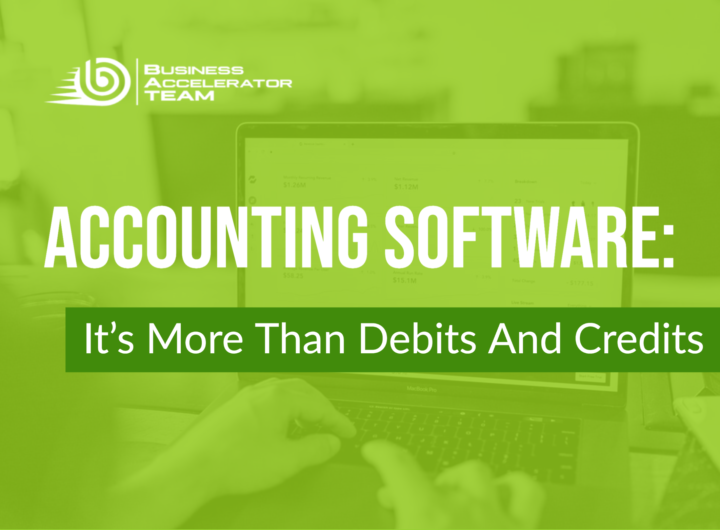Often dubbed a necessary evil, accounting software is one of the most important decisions a potential customer will make. It is a platform that harnesses valuable information for the entire company, not just the accounting department, therefore selecting accounting software should involve the customer’s entire management team, as well as any other end users of the data. While internal clients are critical stakeholders in this investment, organizations will also view this as long-term partnership with the software vendor.
In addition to debits, credits, and other accounting functions, software providers should focus on what type of tools, or ‘actionable data,’ they can provide to non-accounting users. This article will explore key considerations the potential customer will evaluate before adopting new accounting software.
Interfacing with Existing Systems
An open architecture and user-friendly interface are important – the vendor should demonstrate the software’s ability to interface with existing and potential future systems and equipment. While the new software will have security in place, it is critical that it will have the ability to import/export data and be compatible with a stores’ existing architecture (e.g. POS system, kiosk, website, loyalty software and/or mobile application) and also export data to a reporting tool.
Ease of Use for Store Managers
Organizations should consider software that reduces stress at the store level, and a manager who is armed with data that helps determine scheduling needs based on peak sales hours or other sales trends will be poised to schedule staff correctly. Integrated labor scheduling creates a vast ROI for the client by streamlining what has historically been a time-intensive process, reducing labor cost at store level. However, if the potential customer schedules through its human resources information system (HRIS), compatibility will be a critical factor in the decision-making process.
Task reminders are another feature that will alleviate stress at both the field and store manager levels. Embedded functionality enables field managers to communicate via reminders, helping the store manager stay on task in the midst of a busy day.
Store managers also need a user interface that speaks in non-accounting terms, making it easy for non-financial team members to put quality data in and accurately interpret the data they access.
Real Time Reporting
Exception based reporting that is received in real time arms potential customers with relevant information that is critical to making timely decisions that enhance profitability. For instance, if sales suddenly slump, a timely report will alert a field manager to quickly explore the drop. Whether it is road construction or an inventory shortage, this important knowledge allows management the opportunity to course correct, whereas stale data does not.
Reporting is also invaluable when it comes to projecting sales, creating suggestive orders, or reducing out of stock (OOS) items; all factors in providing excellent customer service and improving profitability. Timely, relevant exception reporting that alert management can help reduce shrink, increase sales and identify opportunities for improvement when parameters are put in place.
Many systems make it difficult to get to the data and use it. Every customer wants custom reports to see the data in a relevant way for both internal and external users.
Traditional Considerations
Once the needs of a variety of internal end users are explored, it is important that the software also meets the needs of the accounting department, through:
Ease of Government Reporting
Data Security
Hardware needs or cloud-based data storage and impact on IT department resources
Availability and cost of vendor support
Scalability as needs change
Remote system access at various levels (corporate, field personnel, and store managers). Even prior to the pandemic creating new work from home scenarios, many organizations require remote functionality to automatically create ROI
In closing, software vendors should consider the above non-traditional accounting features when developing and marketing their software as it is a ‘hard sell.’ This considerable investment has an ROI that is difficult to quantify, however it is the non-traditional accounting features that offers added value that ultimately provides ROI.
Monique Horn helps entrepreneurs transform great ideas into reality by providing a solid foundation for growth. Monique gained extensive experience in all aspects of the c-store industry after serving as Controller, Chief Financial Officer and Chief Accounting Officer for Family Express Corporation over the course of 30 years.


